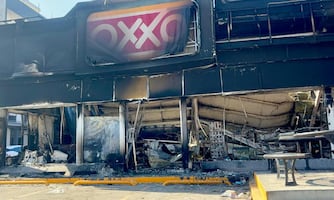On March 30, Mexico declared a health emergency and issued stricter rules aimed at containing the fast-spreading COVID-19 after over 1,000 cases were confirmed and 28 deaths were reported.
During a news conference, health officials reported 1,094 coronavirus cases and 28 deaths. Dr. López Gatell , Mexico’s COVID-19 czar , reiterated his warning that the health system might be overwhelmed if the coronavirus is not contained.
The new measures implemented to fight COVID-19 include a decrease in the number of people who can gather to 50 and an extension of the suspension of non-essential activities , which means many will remain home until April 30.
“This applies, strictly, to people older than 60 years, those who have hypertension , diabetes or are pregnant , regardless of whether their jobs are considered essential,” said Deputy Health Minister Hugo López Gatell .
Recommended: Live Updates: COVID-19 death toll in Mexico
Additionally, Mexico has one of the world’s highest rates of obesity and diabetes ; therefore, experts have warned that its population could be more vulnerable than its relatively young average age might suggest.
Foreign Minister Marcelo Ebrard
, who declared the health emergency, said that people or companies who ignored the rules would face administrative or penal sanctions.
Unlike the majority of countries affected by coronavirus , President Andrés Manuel López Obrador has not ordered a lockdown or other drastic measures to halt the spread of COVID-19 due to concerns over the Mexican economy .
In Mexico City, the most populated city in the country, Mayor Claudia Sheinbaum also declared a health emergency as a result of the COVID-19 pandemic.
In a message posted on social media, Sheinbaum emphasized that the actions taken now will determine the way in which authorities will face the disease.
In the city , stricter measures will include halting non-essential activities until April 30, as well as the banning of gatherings of over 25 people.
Recommended: COVID-19: Obesity and diabetes put Mexicans at higher risk of coronavirus
Pharmacies, clinics, and hospitals won’t close. Other essential businesses such as banks, gas stations, markets, and grocery stores will remain open. Restaurants are only allowed to sell takeouts and deliver food.
Funeral homes are also allowed to operate during the contingency .
Claudia Sheinbaum
also said that panic buying is unnecessary.
After April 30, people will start to return to work but not all at the same time.
Recommended: COVID-19: Mexico's federal government temporarily suspends its activities
gm
Noticias según tus intereses
[Publicidad]
[Publicidad]














